
THE VOICE OF INTERNATIONAL LITHUANIA
|
VilNews has its own Google archive! Type a word in the above search box to find any article.
You can also follow us on Facebook. We have two different pages. Click to open and join.
|
News
Kubilius still wants Euro introduced by 2014
- Posted by - (0) Comment
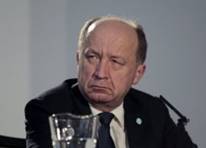
Prime Minister Andrius Kubilius says that Lithuania will press ahead with a plan to adopt the euro in 2014 and accompanying fiscal reforms
Lithuania’s central bank governor Vitas Vasiliauskas said the country was unlikely to hit that target due to price pressures, setting the scene for above-target inflation to thwart its ambition of joining the single currency for the second time.
Analysts agreed it would be no surprise if Lithuania missed the target, but Prime Minister Andrius Kubilius said his government would not waver from its accession programme.
"The government is aware of the inflation challenge, but is going to stick to its plan to meet the euro adoption criteria by the end of 2012, including budget deficit," Kubilius told Reuters via his spokesman.
Lithuania missed euro adoption in 2007 after inflation overshot the entry criterion, as stipulated by the Maastricht Treaty, by a whisker.
Data earlier on Wednesday showed consumer prices rose at their fastest rate in two years in May.
"Inflation is going to be the main obstacle (again)," said Vasiliauskas, citing high energy prices and becoming the first top official to say the entry timetable was unrealistic.
"Our forecasts show that we will not be able to meet the (entry) criteria in 2012 or in 2013...
"The fact is that under our forecasts, 2014 does not look like the year when we can have the euro ...," he told a news conference.
The central bank expects inflation to rise to 3.9 percent in 2012 from 3.8 percent this year.
Read more at:
http://www.reuters.com/article/2011/06/08/lithuania-euro-idUSLDE7570MH20110608
- Bookmark :
- Digg
- del.icio.us
- Stumbleupon
- Redit it
![]()
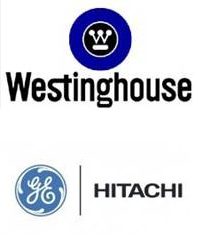
Lithuania received bids from Westinghouse Electric Corp. and Japan’s Hitachi-GE Nuclear Energy Ltd. to build a nuclear power plant after shutting the Soviet-era Ignalina facility at the end of 2009.
The government will select the winning bidder this summer as it seeks to replace Ignalina, which the European Union ordered to be closed because of its similar design to the Chernobyl reactor that exploded in 1986, the Vilnius-based Energy Ministry said in an e-mailed statement today.
The Baltic nation plans to open a new plant in Visaginas in 2020 as Germany aims to close its units there. Lithuanian support for nuclear energy has remained high after the Ignalina closure pushed up energy costs and increased dependence on Russian energy. Lithuania imports almost 50 percent of its power. Russian gas monopoly OAO Gazprom supplies all of its gas.
“This project has a strategic significance across the whole Baltic Region,” Westinghouse, the U.S.-based nuclear reactor builder owned by Toshiba Corp., said in an e-mailed statement today.
Westinghouse offered AP1000 reactor technology with a proposed capacity of 1,154 megawatts in output along with “a strong commercial proposal,” it said without elaborating.
German Chancellor Angel Merkel called on May 30 for the closure of 17 nuclear reactors by 2022 in light of the partial meltdown of Tokyo Electric Power Co.’s Fukushima Dai-Ichi plant in Japan.
“For Lithuania and the whole region it is important to have independent capacity to generate electricity,” Prime Minister Andrius Kubilius told a news conference today. “Different countries have different solutions to these issues.”
Read more at:
http://www.bloomberg.com/news/2011-06-01/hitachi-ge-westinghouse-bid-to-build-lithuania-s-nuclear-plant.html
- Bookmark :
- Digg
- del.icio.us
- Stumbleupon
- Redit it
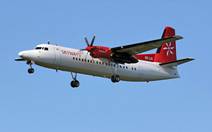
As the summer flight season is gaining momentum, Vilnius Airport can today welcome the Swedish airline Skyways.
From 7 June Skyways will operate flights to two European capitals – Stockholm and Berlin.
Swedish flights from Vilnius to Stockholm Arlanda Airport are scheduled every business day. Time of departure from Vilnius – 6:50; time of arrival to Vilnius – 10:10.
Skyways will also open flights from Vilnius to Berlin Tegel Airport – on a daily basis, except for Saturdays. Departure from Vilnius – 14:45; arrival to Vilnius – 18:20.
“ This summer Vilnius will have especially good connections to Germany: apart from new flights to Berlin opened by Skyways, Lufthansa will operate flights to Frankfurt, Ryanair will fly to Bremen and Wizz Air will launch new flights to Dortmund from the end of July,” says Tomas Vaišvila, General Manager of Vilnius International Airport.
Skyways flights will be operated by an Embraer 145 jet airplane with 48 seats.
This summer Vilnius Airport will service 600 flights per week. Sixteen airlines will operate regular flights from Vilnius to 29 European airports.
- Bookmark :
- Digg
- del.icio.us
- Stumbleupon
- Redit it

June 06, 2011, Invest Lithuania
Ryanair, which operates more than 1,500 flights per day from 44 bases and 1200+ low fare routes across 27 countries, is considering opening a Maintenance Repair and Overhaul (MRO) facility in Kaunas, Lithuania, to support its fleet maintenance requirements. The facility would be at Kaunas airport and would manage a range of aircraft checks and maintenance.
On 22nd June Ryanair is organizing a Recruitment Day in Kaunas and is expecting to meet potential candidates – mechanics, engineers, management and clerical staff - to form the local personnel team to work in Ryanair’s new MRO facility.
- Bookmark :
- Digg
- del.icio.us
- Stumbleupon
- Redit it
New biotechnological and R&D centre in Vilnius
- Posted by - (0) Comment
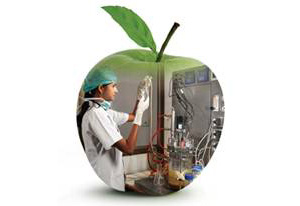
June 06, 2011, Invest Lithuania
In the integrated science, studies and business centre the Santara Valley, located in the capital of Lithuania, a new biotechnological and R&D center and the biopharmaceutical product development laboratory are arising.
The biopharmaceutical company Biotechpharma, developing the new centre in the Santara Valley, is expecting to complete the project in a year. Investments should reach EUR 16.2 million, and part of it – EUR 11 million will come from the EU Structural Funds.
The new Biotechpharma R&D center will be equipped with a modern biopharmaceutical product development laboratory and will supplement the company’s research division. The center will be able to do more outsourcing: to develop not only pharmaceutical production technologies, but also new experimental drugs suitable for clinical research.
According to Biotechpharma, the state-of-the-art infrastructure, complying with the highest international requirements, will create the best conditions for Lithuanian scientists to develop and improve their qualifications. Currently, the laboratory employs 14 scientists who specialize in the biopharmaceutical, biochemical, genetic engineering and other fields. It is expected to create about 30 more jobs.
Biotechpharma is the only outsourcing biopharmaceutical scientific research and experimental development supplier in Central and Eastern Europe. In this region individual biopharmaceutical R&D services are provided by small research consultancy firms and some institutes, but the closest R&D centers, where there is ability to develop complex production technologies, are only in Western Europe and the United States.
Biotechpharma is settling down in the Santara Valley and joining other biopharmaceutical companies such as UAB Sicor Biotech Ltd., Valentis, Moog Medical Devices etc.
According to experts, share of biotechnologies in the Lithuanian economy is very similar to that in Germany, Great Britain or France.
In addition to the Santara Valley, 4 other integrated science, studies and business valleys are under construction in Lithuania: the Sunrise Valley in Vilnius, the Santaka and Nemunas Valleys in Kaunas, and the Baltic (Maritime) Valley in Klaipeda.
- Bookmark :
- Digg
- del.icio.us
- Stumbleupon
- Redit it
The Sunrise and Santara Valleys in Vilnius
- Posted by - (0) Comment
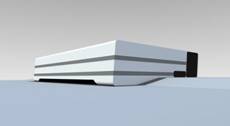
The “Sunrise Valley” and “Santara Valley” programmes, initiated by Vilnius University, are going to change the structure of the University itself and will stimulate a breakthrough in research development and research commercialization. These integrated centers of research, education and business are in development. This is a guarantee for Vilnius University to position itself in European and global research and education, uniting universities, research institutes, top-level high-tech companies and fast-developing start-ups. The first building of Sunrise Valley Science and Technology Park with Business Incubator has opened already, the next one – The National Open Access Science Information and Communication Centre is soon to be built. The Sunrise Valley STP provides high quality sites and premises suitable for technology-driven businesses and promotes networking between the universities and businesses, between the businesses themselves, and with partners elsewhere in Lithuania and worldwide.
- Bookmark :
- Digg
- del.icio.us
- Stumbleupon
- Redit it
COMMENT: Why would Lithuania’s ex-premier help build a new nuclear power plant in Russia?
- Posted by - (0) Comment
![]()
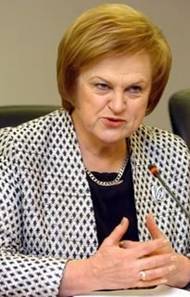
Kazimira Prunskiene
MOSCOW – To a casual observer, Lithuania’s former prime minister Kazimira Prunskiene might seem to be aiming to forge good-neighbourly relations with Russia. In point of fact, this is nothing but a ploy to be able to tap into the funds allocated for the construction of Russia’s Baltic Nuclear Power Plant in Kaliningrad Region.
At the end of May, Prunskiene – currently the leader of Lithuania’s agrarian centre-left party, the Lithuanian Peasant Popular Union, and formerly, this small Baltic republic’s prime minister in 1990 and 1991, was on a visit to Russia’s westernmost enclave of Kaliningrad. The agenda of this trip also included a visit to the site of the Baltic Nuclear Power Plant (NPP), now under construction. During a meeting with Kaliningrad Governor Nikolai Tsukanov, Prunskiene talked about the “necessity” for Lithuania to participate in the construction and operation of the future plant. As she said after the conversation with the governor, she had had the opportunity, while being led around the site, to ascertain for herself the “potential, reliability, and safety of the station.” The interesting fact about this station is that at this point, it presents nothing more than a huge pit awaiting to be filled with concrete for a future foundation. An assessment of reliability of a new nuclear power plant based on a tour around a big empty pit must indeed be a completely novel and unique method in the history of NPP safety evaluations.
What is this new Russian site exactly? The Baltic NPP is being built in Neman in Kaliningrad Region, a small patch of Russian land wedged between the European Union nations of Poland and Lithuania, on the southwest and northeast, respectively, and the Baltic Sea on the west. To the southeast beyond Lithuania is another former Soviet republic, Belarus, and further to the east, the vast expanses of mainland Russia. The two-unit 2.3-gigawatt nuclear power plant built to an experimental Russian design will thus end up being in the very backyard of the European Union, close to the Lithuanian capital, Vilnius, and also one tip of an ominous triangle – Belarus’s project in Ostrovets and Lithuania’s own tentatively planned new NPP in Visaginas being the other two – that environmentalists fear will lock the Baltic region into a desperate nuclear chokehold.
Curiously, the Baltic NPP is also a first Russian NPP project that Moscow has made open to participation by foreign investors – 51 percent of the capital funding is to be provided by the Russian state nuclear corporation Rosatom, while the rest is expected to flow from private coffers based abroad. And the only reason this station is being built is to export the future power output to the European Union – rather than meet the local demand – something that is well confirmed by documents from the Russian electric power trader Inter RAO, which has been charged with finding a European investor for the project.
Read more at: http://www.bellona.org/articles/articles_2011/lith_moscow
- Bookmark :
- Digg
- del.icio.us
- Stumbleupon
- Redit it
![]()
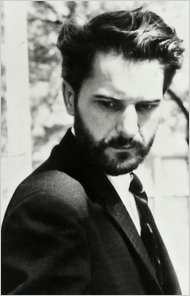
Adolfas Mekas, a Lithuanian immigrant who became an influential avant-garde filmmaker and teacher and who, with his brother Jonas, founded Film Culture, the seminal journal for cinéastes, died on Tuesday in Poughkeepsie, N.Y. He was 85.
The cause was heart failure, his wife, Pola Chapelle, said.
Though Jonas Mekas, a prolific director and avant-garde film archivist, became the better-known sibling, Adolfas Mekas made a handful of films that endure as avant-garde landmarks. The best known of them, “Hallelujah the Hills,” a comedy that spoofed movie history in telling an elliptical tale about two young men and their slapstick pursuit of the same girl, was among the critical and popular hits of the inaugural New York Film Festival in 1963.
“Hallelujah” was praised at the festival alongside films by Alain Resnais (“Muriel”), Roman Polanski (“Knife in the Water”), Luis Buñuel (“The Exterminating Angel”) and Joseph Losey (“The Servant”).
Source, New York Times:
http://www.nytimes.com/2011/06/03/movies/adolfas-mekas-avant-garde-filmmaker-and-teacher-is-dead-at-85.html
- Bookmark :
- Digg
- del.icio.us
- Stumbleupon
- Redit it
Fraud and corruption in Lithuania
- Posted by - (1) Comment

VilNews will frequently follow what goes on with regard to fraud and corruption in Lithuania. The statistics do not look particularly bright, and it seems that people`s perception of the circumstances with regards to fraud and corruption is not getting more optimistic over the years - rather the contrary.
In a recent survey people were asked how they think the level of corruption in this country has changed over the last three years. Here is what they answered:
8% - decreased
29% - stayed the same
63% - increased
Another question was: How would you assess your current government`s actions in the fight against corruption?
78% - ineffective
16% - neither
6% - effective
- Bookmark :
- Digg
- del.icio.us
- Stumbleupon
- Redit it
![]()
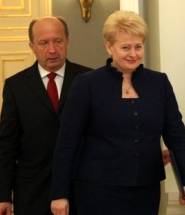
President Dalia Grybauskaite, soon two years in office, here with Prime Minister Andrius Kubilius.
"After the first year [as president], I slightly changed my approach to work. During the first year, we tried to help the Government, while, as the second year's task that I set for myself and my team was trying not only to help out the Government, but also initiating many legislative proposals on our own, especially, when it comes to fighting corruption and collusions on prices, making public procurement more transparent, legalizing extended confiscation of property, increasing penalties, introducing of terms in public offices, especially in law enforcement institutions," Grybauskaite said in an interview with the radio Ziniu Radijas this week.
The result of the new approach is the double amount of legislative drafts that reached the Seimas from the Presidential Palace. "Compared to previous year with 34 laws adopted, during the second year, we proposed 66 of them. I am glad that almost 75% of all initiatives enjoyed support. (...) I am also happy that the Seimas approved almost all of my proposals, with some small corrections only. I am glad because this shows that the Seimas and I understand each other," Grybauskaite said. The president will read her second annual report after a week.
Among the main achievements for the country under her leadership, the President named the NATO defence plans for the Baltic States, and the EU decision that by 2015 the Baltic States would be integrated into the European energy space, thus eliminating our energy isolation.
"We also received support for our idea of stricter requirements for nuclear power companies and especially for new constructions that are taking place next to the EU, that is, next to Lithuania. The idea was that new yet to be built nuclear power plants would be subject to very strict safety requirements, as well as stress-tests would be ran on them," Grybauskaite said.
The president was happy about the support for electricity and gas exchanges which to be formed. "Both energy and defence were extremely important priorities in foreign policy, they meet the interests of Lithuania and every citizen, they provide us with a development opportunity, coming out of difficult economic situation and having sufficient security so that we would develop the country for the good of people," Grybauskaite stressed.
Source: http://www.baltic-course.com
- Bookmark :
- Digg
- del.icio.us
- Stumbleupon
- Redit it
![]()

The government should restore pensions as planned to levels last reached before the global financial crisis and raise the minimum wage in 2012 as the economy expands, Grybauskaite said to another radio station, Lieutvos Radijas, last week.
The IMF estimates that the pension increase will boost spending by 0.6 percent of GDP. The government said today it plans to keep a freeze on public workers’ salaries next year after an 8 percent cut in 2009. The economy expanded 6.9 percent in the first quarter.
Grybauskaite told the government to resist turning the 2012 budget plan into a pre-election spending campaign.
- Bookmark :
- Digg
- del.icio.us
- Stumbleupon
- Redit it
Lithuania is the most attractive country for international companies looking to invest in the region of the Baltic States, the latest 2011 European Attractiveness survey from Ernst & Young shows
- Posted by - (0) Comment
![]()
“The number of projects has increased from 33 to 61 with Lithuania leading the region, with 31 project announcements. Investors come to the Baltics to invest in air transportation (25 %), financial services (12 %) and utilities (10 %). These countries are re-emerging as lower cost near-shoring locations with a quality workforce on the doorstep of Western Europe,” the survey reveals.
Ernst & Young’s 2011 European Attractiveness survey reflects Europe's real attractiveness for foreign direct investors, based on Ernst & Young's European Investment Monitor (EIM), as well as attractiveness of Europe and its competitors evaluated by a representative panel of 812 international decision-makers.
Follow to download 2011 European Attractiveness survey here.
- Bookmark :
- Digg
- del.icio.us
- Stumbleupon
- Redit it

Ambassador Antanas Valionis called Latvian President Valdis Zatlers "villainous" and questioned his motives for trying to disband the Latvian assembly
Lithuania's ambassador to neighbouring Latvia is resigning following comments he made attacking the Latvian president's move to dissolve Parliament.
In an interview with Latvian news site delfi.lv, Ambassador Antanas Valionis called President Valdis Zatlers "villainous" and questioned his motives for trying to disband the Latvian assembly.
Zatlers said over the weekend new elections were needed to weed out a culture of corruption among lawmakers.
Baltic news agency BNS reported Valionis announced his resignation Tuesday after a meeting with Lithuanian President Dalia Grybauskaite, saying: "I apologize to the Latvian president who was insulted by my words. Therefore, I think I should not continue working in Latvia."
Source: The Associated Press
- Bookmark :
- Digg
- del.icio.us
- Stumbleupon
- Redit it
![]() By Milda Seputyte – BLOOMBERG
By Milda Seputyte – BLOOMBERG

Lithuania’s economic growth accelerated to 6.9 percent in the first quarter, the second- fastest in the European Union, on investments and increased domestic demand.
The expansion compares with a 4.8 percent rise in the fourth quarter, the Vilnius-based statistics office said in an e-mailed statement today. The result is unchanged from a preliminary estimate on April 28. The economy expanded a seasonally adjusted 3.5 percent from the previous quarter.
Lithuania, part of the Baltic region along with Estonia and Latvia that suffered the world’s deepest recession in 2009, is benefiting from rising demand for its exports that account for about two-thirds of output. Foreign sales and recovering domestic demand has pushed economic growth to the fastest rate in the EU after Estonia.
Household consumption grew an annual 5.5 percent in the first quarter and capital formation jumped 41 percent from a year earlier on investments in real estate, equipment and machinery, the statistics office said.
The International Monetary Fund raised on May 19 its economic-growth forecast for Lithuania to 6 percent this year from 4.6 percent. The Finance Ministry estimates the economy may grow 5.8 percent this year, betting on an export-driven expansion as growth in the rest of Europe propels shipments of Lithuanian products to record highs.
Exports grew an annual 21.8 percent in the first quarter, driven by sales of refined fuels, cars and fertilizer. The Orlen Lietuva AB refinery, the nation’s biggest exporter, said crude processing grew 27 percent in the period from last year.
Retail trade expanded an annual 20 percent in the first three months of the year as consumers spent more on cars and clothing. Car sales rose an annual 83 percent in the period driven by demand from neighboring Belarus as the country prepares to unify its tariffs for vehicle imports from July 1 with other countries in a customs union that also includes Russia and Kazakhstan.
- Bookmark :
- Digg
- del.icio.us
- Stumbleupon
- Redit it
Obama’s visit to Poland could mark change in relations with Eastern Europe
- Posted by - (1) Comment
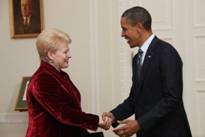
Last Friday President Dalia Grybauskaitė attended the meeting of Central European heads of state with US President Barack Obama. At the working dinner the Lithuanian President underlined that NATO anti-missile defense must cover all Allies. According to the President, NATO-Russian relations are particularly important for Lithuania owing to its strategically special location on the boundary of the Alliance’s territory. The President said the agreement reached in the NATO Lisbon Summit must not be changed and must not become the object of negotiations with Russia.
By Irena Chalupa
U.S. President Barack Obama’s European tour has offered something for everyone: the folksiness of a walk through an Irish village, the pomp and circumstance of a meeting with Queen Elizabeth, the gravitas of a G8 summit. His trip was ending in Poland, where the president met with 20 leaders from the countries of Central and Eastern Europe after his arrival and met with the Polish president the next day.
That scheduling leaves itself open to competing interpretations. Some of those attending the summit undoubtedly wonder whether this is a case of the president saving the most important item on his itinerary for last -- or of treating their part of the world as an afterthought.
Eastern Europeans worry that their region is sliding down the list of Washington’s priorities at a moment when political upheavals are transforming the Middle East. Others fret that the Obama administration’s much-discussed “reset” of its relationship with Moscow has come at their cost.
- Bookmark :
- Digg
- del.icio.us
- Stumbleupon
- Redit it
Lithuania may extract shale gas in two years
- Posted by - (0) Comment
![]()
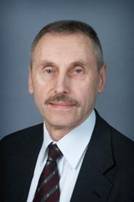
Energy Minister Arvydas Sekmokas quoted American experts as saying that Lithuania could extract not layers, but about 10 billion cubic metres of gas at the value of up to 30 billion U.S. dollars
As soon as year 2012, Lithuania may start works with test drills for shale gas with a private investor. Lithuania has 480 billion cubic metres of shale gas which could produce 100 billion cubic metres of gas, geologists say.
More actions should be taken to determine how much of the gas Lithuania has and what benefit it could bring, Environment Minister Gediminas Kazlauskas said after a meeting with the leadership of the Geological Survey of Lithuania Service, informs LETA/ELTA.
Exploration of shale gas is expensive for the budget and would take long, therefore, it will be aimed to draw investment from foreign companies, the minister said.
Energy Minister Arvydas Sekmokas quoted American experts as saying that Lithuania could extract not layers, but about 10 billion cubic metres of gas at the value of up to 30 billion U.S. dollars. However, according to the minister, these are only theoretical considerations which are not based on geological data. The research project is estimated to cost about 250 million U.S. dollars.
Prime Minister Andrius Kubilius intends to set up a working group on the matter. Lithuania's shale gas resources are expected to meet the country's needs for from 30 to 50 years.
Shale gas resources are possibly situated in south-west Lithuania, extending to the Kaliningrad region and Poland.
- Bookmark :
- Digg
- del.icio.us
- Stumbleupon
- Redit it
VilNews e-magazine is published in Vilnius, Lithuania. Editor-in-Chief: Mr. Aage Myhre. Inquires to the editors: editor@VilNews.com.
Code of Ethics: See Section 2 – about VilNews. VilNews is not responsible for content on external links/web pages.
HOW TO ADVERTISE IN VILNEWS.
All content is copyrighted © 2011. UAB ‘VilNews’.

 Click on the buttons to open and read each of VilNews' 18 sub-sections
Click on the buttons to open and read each of VilNews' 18 sub-sections 















.jpg)



